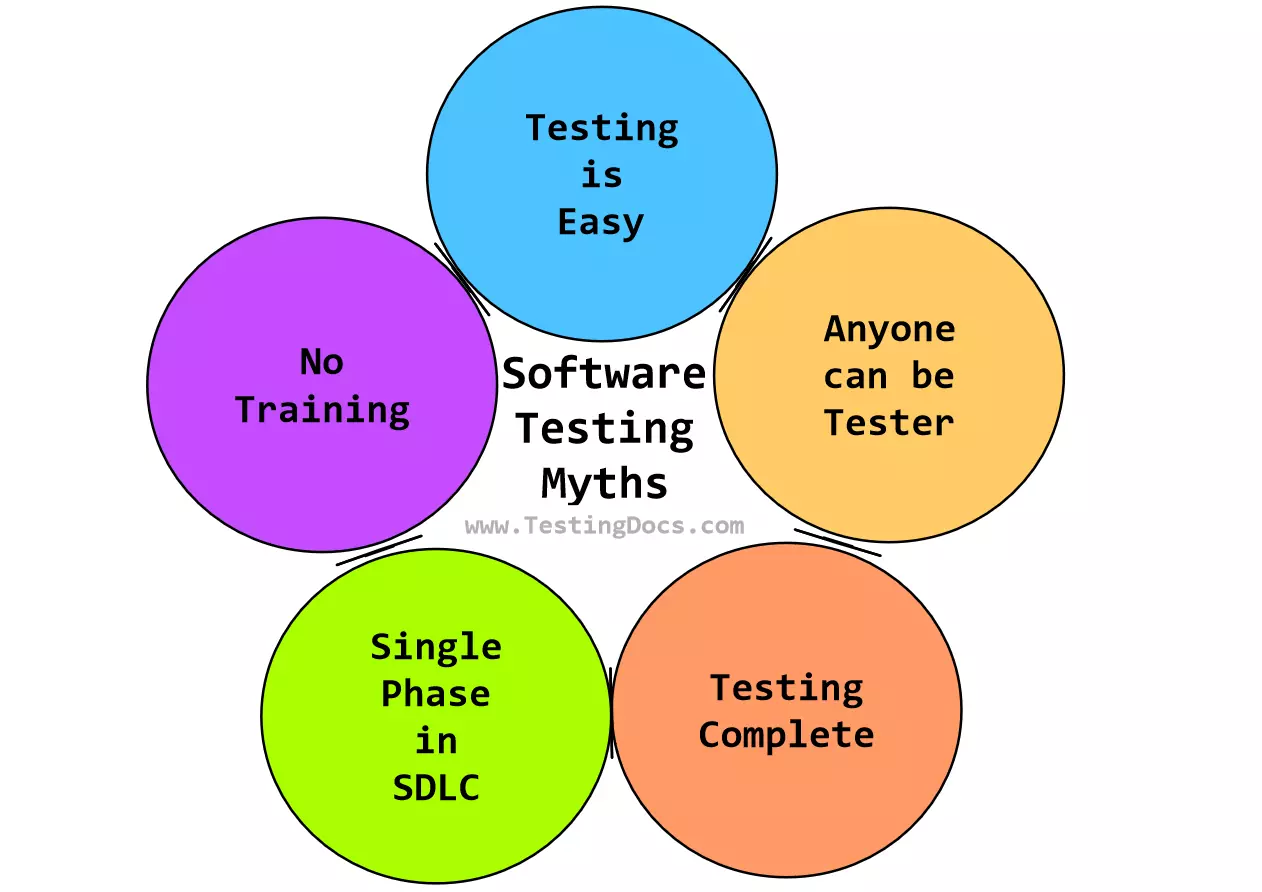Software Testing Myths
Overview
In this tutorial, let’s discuss some software testing myths and the facts. Myths are beliefs, stories, sayings, customs, etc. that are not necessarily intended to be taken as truth.
Software Testing Myths
There are many myths surrounding software testing that can mislead people. Some of the software testing myths are as follows:
- Testing is easy
- Single phase in SDLC
- Anyone can be a software tester
- The test team can test the program completely
- Only testers are responsible for the quality

Let’s discuss the facts and demystify each of the software testing myths in this section.
Myth:Testing is easy
The myth is that software testing is simple and easy. No training is needed for software testers to perform testing. In reality, software testing is not easy as it appears. Software testers need training to effectively test the software product.
Myth:Single phase in SDLC
The myth is that software testing is a single phase in SDLC(Software Development Life Cycle). It is a myth that software testing is just a single phase in SDLC. In reality, software testing starts as soon as we get the software requirement specifications (SRS) for the software application. Software testing continues throughout the SDLC.
Myth:Anyone can be a tester
Many people think that anyone can do software testing. In reality, testing is a complex and specialized task that requires a deep understanding of the software being tested, the testing process, and various software testing techniques.
Myth: The test team can test the program completely
The fact is that the testing team cannot test the program completely. Exhaustive testing of the application is not possible. Software testing is important to ensure software quality. It is impossible to find all bugs in the system. Testing cannot prove the absence of bugs in the product.
Myth: Only testers are responsible for the quality
Quality is the responsibility of the entire software team, not just testers. Everyone involved in the project should strive to produce a high quality product and take ownership of any issues that arise.





